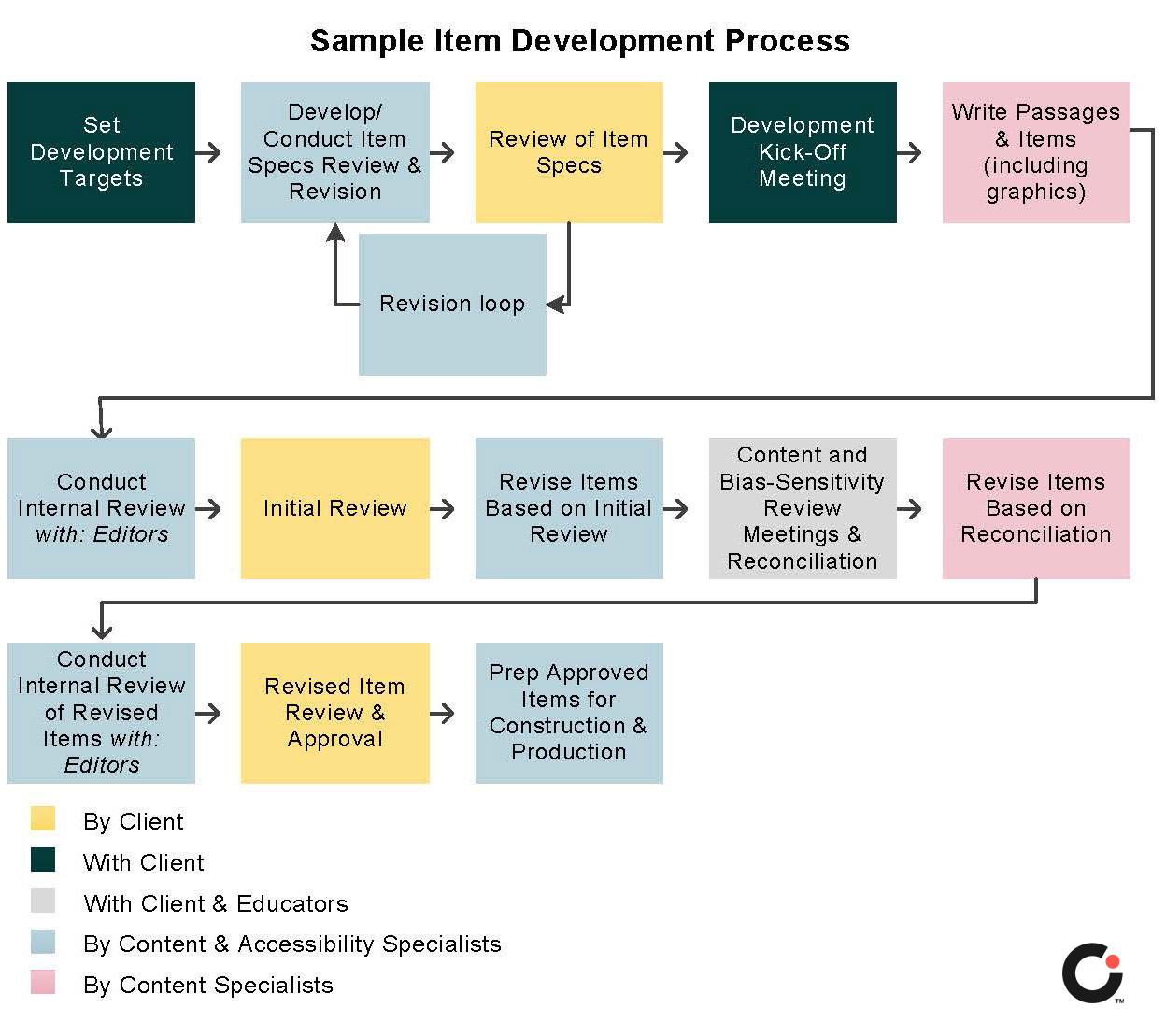The U.S. Individuals with Disabilities Education Act (IDEA) secures access for all students to certain educational rights. Along with the Every Student Succeeds Act (ESSA), the IDEA requires states to administer a statewide alternate assessment that is valid and reliable.
Developing an alternate assessment goes beyond compliance with regulations. Such an assessment must be built on the determination and passion to provide students with significant cognitive disabilities authentic ways to demonstrate what they know and can do related to the academic standards for their state. As a former teacher of students with significant cognitive disabilities, I fully believe in the importance of the alternate assessment, and I understand it is only one part of the whole picture of a student’s ability.
A little about the students
Students with significant cognitive disabilities are highly varied in their abilities. IDEA does not identify one specific disability category for these students. The primary disability category most often includes intellectual disabilities, autism, and multiple disabilities. In many cases the student profile includes additional disability categories, such as deaf or hard of hearing, blind or visually impaired, and motor impairments.
Students with significant cognitive disabilities are instructed following the same statewide academic standards as their general education peers, but their achievement expectations are less deep and broad, for very important reasons. Statewide academic standards are meant for all students. Reduction in the depth and breadth of the standards allows for access to the same content but at varying levels. Many students with significant cognitive disabilities are taught in inclusive classroom settings and having the same content allows for meaningful peer interaction as well as demonstration of achievement at a more accessible level.[i] In addition, some students, after years of very focused and intensive instruction, may move to instruction on the broader statewide academic standards and take the general education assessment with or without accommodations. We need to approach both teaching and assessment development from the perspective of the least dangerous assumption, which presumes competence, and seek to elicit what students can demonstrate, not focus on what they can’t.
Instruction based on the universal design for learning (UDL) framework encourages inclusive instruction for all students, and better performance on the alternate assessment for this student population. Many schools and districts rely on outside expertise to guide them in these practices. We regularly look to two organizations for best practices in instruction and assessment for students with significant cognitive disabilities: CAST (originally called the Center for Applied Special Technology, now simply CAST) and the TIES Center (increasing Time, Instructional effectiveness, Engagement, and state and district Support for inclusive practices) . CAST created the UDL framework and UDL guidelines. The TIES Center provides a myriad of technical assistance and resources to schools and districts.
An experienced approach to developing an alternate assessment
At Cognia we have a strong understanding of the student population that takes the alternate assessment and the significance of the assessment in the overall picture of performance for these students. Our approach to developing an alternate assessment is based on years of experience working with states and stakeholders to deliver meaningful results that have a positive impact on students’ learning. We were one of the first assessment organizations to work with states on their alternate assessments, beginning with Massachusetts in 1998. Early assessments assessed content as well as programmatic components and were less structured than they are now. This was just a first step. Now academic content has a stronger focus, and there is structured flexibility in the administration of the assessments, contributing to their psychometric reliability. We’ve not only participated in, but also have led aspects of this evolution.
Our approach is based on establishing a close partnership with the state, so that we understand and internalize their philosophy. We help the state experts articulate the story they want to tell about student performance, and together design an assessment that tells that story. The outcome of the assessment—the results reported—then demonstrates student performance and the intended uses and interpretations needed for understanding among various stakeholders. These stakeholders include school and district administrators, teachers, students, parents, and others as defined by the state. Focusing on the end results helps us appropriately craft the beginning design.
Another key element in our approach is the collaboration between Cognia’s Accessibility Assessment Specialists and Content Specialists. The Accessibility Assessment Specialists are all former special education teachers who have worked with students with significant cognitive disabilities. This direct student knowledge helps us to better shape the design and implementation of the alternate assessment, and the training for teachers. We know that when schools have strong collegial partnerships between their content teachers and their special education teachers, they achieve better instruction and greater student success, even for students with significant cognitive disabilities. We mirror that collegial relationship at Cognia. The Accessibility Assessment and Content Specialists closely coordinate their work through the design and development process—no silos here! This coordination avoids the silos that create only a partially responsive assessment. A siloed development process can lead to an assessment that is accessible but doesn’t get at demonstration of deep content knowledge, or one that addresses the content but misses considerations of student accessibility. The wording of the content and the guidance to teachers on administering the item with the student are all part of accessibility.
Item development is one facet of alternate assessment development in which very close collaboration between accessibility and content is important. The item development process—a detailed, comprehensive process that is unknown to many—includes multiple steps for review and discussions between our specialists, as well as among stakeholders from our state partners and educators in the field.
This collaboration and the early accessibility reviews result in our creating items that allow students to demonstrate knowledge in relation to the academic standards.

Adherence to the principals of universal design is of utmost importance in assessment as well as in instruction! Universal design seeks make educational materials and assessments as accessible as possible for the widest range of students in a way that is not meant to be secondary or separate. At Cognia, we consider the various elements of universal design throughout our item development process. The Accessibility Assessment Specialist brings the universal design lens to all item reviews and discussions on design considerations. Student access (e.g., cognitive, processing, sensory, physical, language) is in the forefront of the process. Being aware of embedded accessibility features (e.g., magnification, audio representation of graphic elements) and reduced language load in the item content helps to address student access.
Cognia also prioritizes training for teachers to help them understand the alternate assessment requirements, not just to comply with the administration guidelines, but also to gain a more holistic, student-centered approach. Helping teachers understand the uses of student scenarios, providing examples of best practices in administration, and demonstrating accommodations and scaffolds or supports are some of the ways we help teachers better understand the assessment and how certain practices can carry over to their daily instruction. Our Accessibility Assessment Specialists have been in these teachers’ shoes and use their experiences in the training. Feedback from teachers in the field shows that they appreciate learning from peers who share their day-to-day experience.
Summary
By following several principles, Cognia continues to develop alternate assessments that demonstrate—and even expand—the capabilities of this important student population.
- Focus on the end results you want to achieve for students and communicate those goals to everyone involved
- Bring diverse, real-world expertise to the table
- Consider accessibility first and throughout your development process
- Ensure that training provides a student-centered focus
[i] Taub, D., Wakeman, S., Saunders, A., Thurlow, M. L., & Lazarus, S. S. (2019). Using the least dangerous assumption in educational decisions (TIPS Series: Tip #6). Minneapolis, MN: University of Minnesota, TIES Center. Available at https://publications.ici.umn.edu/ties/foundations-of-inclusion-tips/using-the-least-dangerous-assumption-in-educational-decisions
© Cognia Inc.
This article may be republished or reproduced in accordance with The Source Copyright Policy.
The information in this article is given to the reader with the understanding that neither the author nor Cognia is in engaged in rendering any legal or business advice to the user or general public. The views, thoughts, and opinions expressed in this article belong solely to the author(s), and do not necessarily reflect the official policy or position of Cognia, the author’s employer, organization, or other group or individual.

